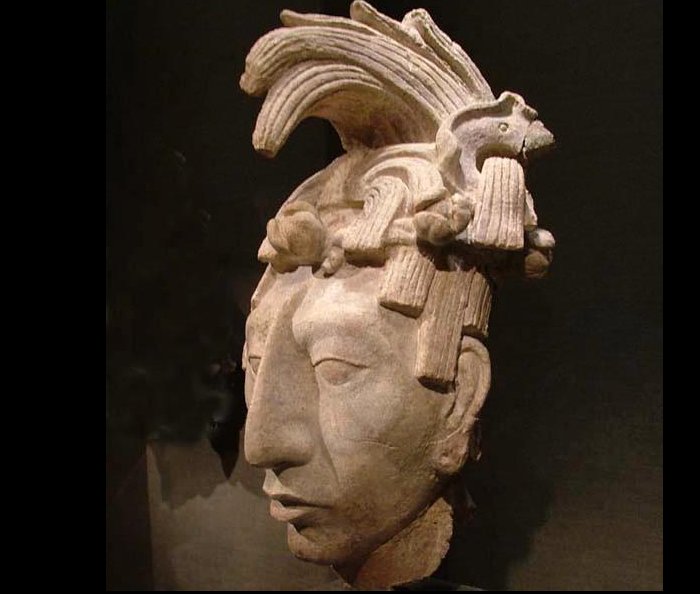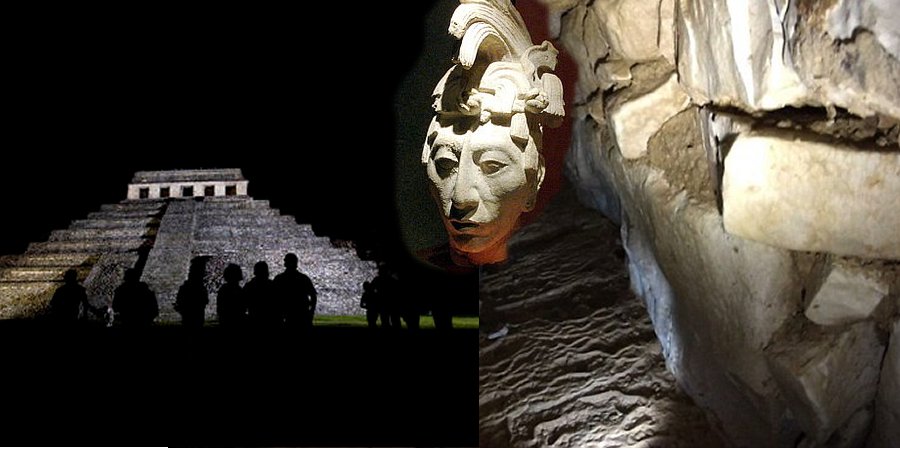MessageToEagle.com – Archaeologists excavating at the Mayan ruin site of Palenque have discovered mysterious underground water tunnels under Lord Pakal’s tomb.
K’inich Janaab’ Pakal reigned between 615 683 CE. Lord Pakal was the founder of the Mayan Empire and the first king of the Mayans. He was responsible for the construction or extension of some of Palenque’s most notable surviving inscriptions and monumental architecture.
For a very long time it was assumed that Lord Pakal was nothing more than a legend, a myth. However, that opinion changed when a mysterious tomb that possibly holds the remains of the great Maya king was located. The discovery of his tomb remains one of the most spectacular finds of Maya archeology.

The discovery of underground tunnel straight under Lord Pakal’s tomb makes the entire ancient site of Palenque even more interesting.
Archaeologist Arnoldo Gonzalez says the tunnels led water from under the funeral chamber out into the broad esplanade in front of the temple. The tunnel, which connects to another, is made of stone and is about two feet (60 centimeters) wide and tall.
The construction of the tunnels was conducted to give Pakal’s spirit a path to the underworld.
A heavily carved stone sarcophagus in which Pakal was buried depicts the ancient Maya ruler in seated position. Carvings on a pair of stone ear plugs found in the grave say a god “will guide the dead toward the underworld, by submerging (them) into the water so they will be received there.” Thus, researchers assume the entire tomb was carefully prepared to help Lord Pakal on his journey to the underworld.
According to Pedro Sanchez Nava, director of archaeology for the National Institute of Anthropology and History the theory makes sense in light of other pre-Hispanic peoples such as those who lived at Teotihuacan, near Mexico City, where another water tunnel was found.
See also:
Teotihuacán: Enigmatic “Birthplace Of The Gods” And Place Of Horrific Sacrifices
Mexican Researchers Have Now Decoded Hieroglyphic Name Of Mayan King Pakal’s Tomb In Palenque
“In both cases there was a water current present,” said Sanchez Nava. “There is this allegorical meaning for water … where the cycle of life begins and ends.”
The same type of three-layered stone covering has been found in the floor of Pakal’s tomb, within the pyramid.
Gonzalez said he believes there is no shaft or connection between the tomb and the tunnel, but adds the conduit hasn’t been fully explored yet because it is too small to crawl through.
Researchers had to send a robot with a camera down to view much of the underground horizontal shaft.
MessageToEagle.com







